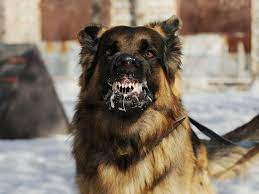
Veterinary Services urges collaboration to fight rabies
The Veterinary Service Directorate (VSD) of the Ministry of Food and Agriculture has called for a concerted effort to help achieve the eradication of human death caused by rabies by 2030.
It said despite efforts to raise awareness of measures to curb incidents of rabies in Ghana, there was still a high number of cases being recorded.
The Head of Epidemiology of the VSD, Dr Fenteng Danso, who made the call, said apathy, lack of adequate education and low budgetary allocation for animal health promotion in the country were some of the causes of the rise in reported cases of rabies in the country.
He was speaking at a ceremony at Asuofia, in the Atwima Nwabiagya North District of the Ashanti Region to mark the 2024 World Rabies Day.
World Rabies Day
World Rabies Day is marked on September 28, each year to raise awareness of rabies prevention and to highlight progress in defeating the horrifying disease.
This year’s event was on the theme: “Breaking Rabies Boundaries”.
Eradication
The Global Alliance for Rabies Control, in collaboration with the World Health Organisation (WHO) and the Food and Agriculture of the United Nations (UN), has since 2015, launched a campaign to help eliminate human deaths from dog rabies by 2030.
Dr Danso said the elimination of rabies in Ghana could only be achieved through a well-coordinated mass dog vaccination programme, targeting 70 per cent of the dog population every year for at least five successive years.
Stats
Dr Danso stated that despite its threat, rabies remained a neglected, under-reported, untreatable disease, even though it could be prevented.
Citing statistics, the VSD head of Epidermiology said rabies had the highest fatality rate of 100 per cent, of any zoonotic disease, causing 55,000 deaths worldwide each year.
He said rabies was a vaccine-preventable disease, stressing that dogs were the most important reservoir for the rabid virus and had been the source of transmitting up to about 99 per cent of all reported incidents in humans.
He also blamed the high numbers on apathy and the perceived high cost of vaccination, as well as failure to sanction dog owners who did not vaccinate their pets.
“There are many people who own dogs but do not see the need to get them vaccinated and there is no punitive measure for that, though it poses health threats to the owners and even innocent people who may be unfortunate to be bitten by those unvaccinated dogs,” he stated.
The VSD head of Epidemiology called for adequate budgetary allocation for the animal health sector to help achieve zero human deaths due to rabies by 2030 as set by the alliance.
He further stressed the need for the government, all stakeholders and development partners to help break the boundaries that might hinder the achievement of the target set by Global Alliance.
Bill
Dr Danso also called on Parliament to speed up the processes of the passage of the Animal Health Bill 2020.
He stressed that the Disease of Animals Act of 1961 (Act 83) that regulated the VSD was outmoded and there was thus an urgent need to pass the bill to help protect and counter animal deaths, and also by extension, protect human lives.
He said the passage of the bill would help prevent the introduction and the spread of animal and zoonotic diseases, regulate all matters related to animal health and products of animal origin, help to promote better animal health and welfare and ensure the monitoring and safety of animal products and their origin.
